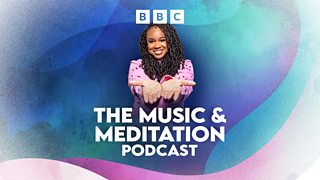How meditation can help your mood, memory and immune system
If you’re short on time and struggling to unwind, meditation could be the solution. Mindfulness meditation has become more popular in recent years and many people swear by its benefits.
Just a little bit of practice a day has been shown to improve sleep, mood, boost your immune system, and even physically rewire your response to stress and pain.
In the Meditate episode of his Radio 4 podcast Just One Thing, Michael Mosley explores how an ancient and seemingly simple practice can have such big benefits.

Does meditation really work?
Dr Michael Mosley explores how meditation physically changes your brain for the better.
The monks were right
Meditation is not new; its roots are in ancient history. Tibetan monks meditate for hours upon hours each week; their practice dates back to the 7th Century. It is a key part of Hindu, Taoist, and Buddhist traditions.

After eight weeks of practice, those in the treatment group had a greater antibody response to a flu vaccine!
It wasn't until the 1970s that mindfulness meditation was introduced to the west by a cognitive scientist called Jon Kabat Zinn. Since then there have been more than 8,000 studies involving mindful meditation, which have pointed to some remarkable effects.
Research has found that taking some time each day to focus on your breath and check in with your body can improve working memory, and even change the structure and function of your brain. It can reduce stress levels and alter your immune system – and you don't need to be a long-term or expert meditator to see positive effects.
Mind power
One study found that less than two months of meditation could alter the participants’ immune response for the better. After eight weeks of practice, those in the treatment group had a greater antibody response to a flu vaccine!
So how can a practice that seems to be just about the mind have such an impact on your body and immune system? A reduction in stress is key.
Straight to the source
The amygdala is a structure in your brain that can initiate your fight or flight response. Under stress, it can trigger your body to produce more of the stress hormone cortisol, which can dull your immune system. Amazingly, studies have shown that meditation can completely re-shape and change this entire process!
One study found that with just eight weeks of meditation, the amygdala gets smaller – great news for stress relief! It can also lead to long-lasting changes in how your brain works, including how it controls your pain, memory and attention.
Rein in the brain
Much like strengthening a physical muscle, you can train your brain’s frontal executive network – the brain’s main controller – to have better command over what your brain pays attention to. This can lead to improvements in working memory, which is “your ability to hold information in mind and use it skilfully. It’s a very important skill for problem solving”, Dr Sara Lazar, an Associate Professor in Psychology at Harvard Medical School, explains. It can also change how you experience pain!

Pain control
Mindfulness meditation can change your response to physical pain. Brain scan studies have shown that the effect is due to how meditation can train your mind to disengage your response to the pain from the physical sensation. For some people, especially chronic pain patients, pain is unavoidable – but meditation really can change our response to it, both behaviourally and in the brain.
Meditation and memory
New data is showing that meditation can create long-lasting change in the brain circuits which are important for long-term memory! Dr Lazar asked people aged 65 to 80, with no previous experience, to learn meditation. After just eight weeks, they found increases in brain volume in a region important for long-term memory – the hippocampus. They also found memory benefits that were maintained for a year or more!
How do I get started?
It's clear that even a short, ten-minute meditation session several times a week is beneficial.
As the practice soars in popularity, there is an increasing amount of resources at your fingertips. Dr Lazar personally recommends finding a teacher and a class, if you can. If not, there are plenty of free resources online.
So give it a go – it’s a seemingly simple technique that could have profound benefits for your mind, your mood, immune system, and memory!
For more on the benefits of meditation and the fascinating field of research behind it, listen to the Meditate episode of Just One Thing on 成人论坛 Sounds.
More from the 成人论坛
-
![]()
The Music & Meditation Podcast
Join NAO to escape the noise of daily life through the power of music and meditation.
-
![]()
The 7,000-year-old alternative to 'smart drugs'
Are there more natural ways to boost your brain?
-
![]()
Slow Radio: Slow Motion Sounds
Stockholm-based artist Milo Lav茅n reveals the hidden world within slowed-down sounds.
-
![]()
Mindful Mix
Enjoy the relaxing sounds of flutes and sitars, no matter what time of day.





















































